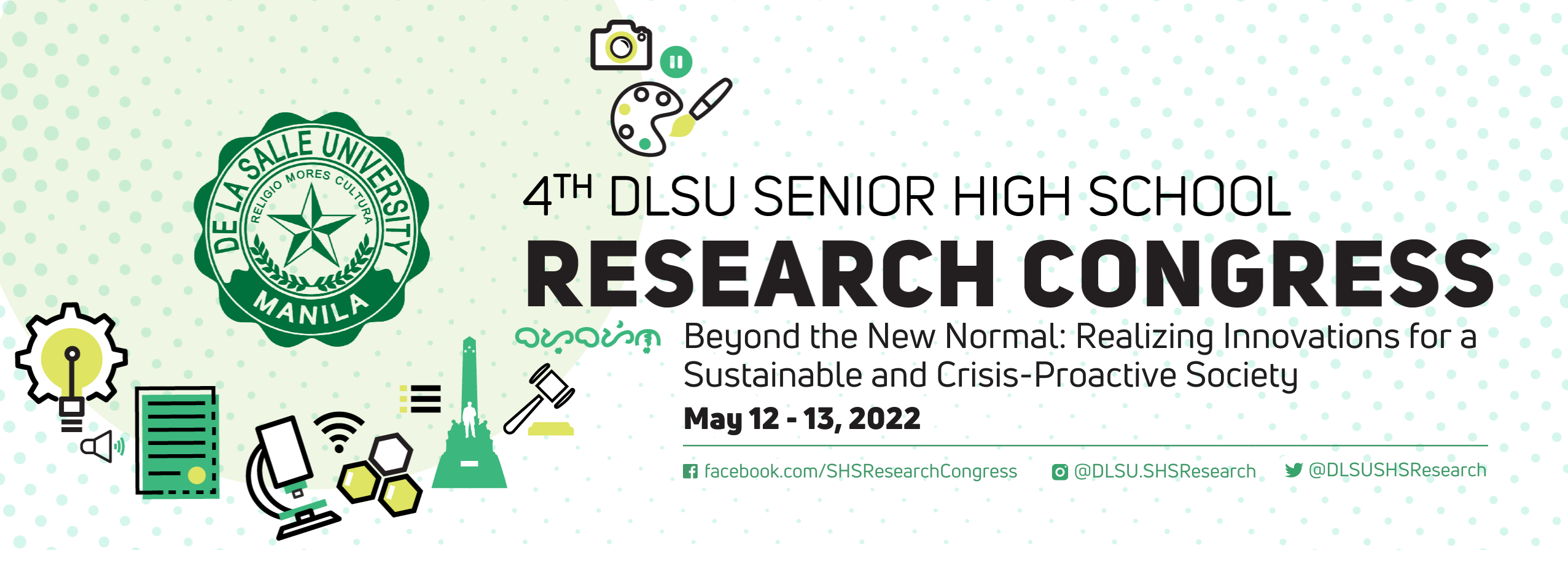Document Types
Paper Presentation
Research Theme (for Paper Presentation and Poster Presentation submissions only)
Computer and Software Technology, and Robotics (CSR)
Research Advisor (Last Name, First Name, Middle Initial)
Michelle Renee D. Ching
Start Date
13-5-2022 10:30 AM
End Date
13-5-2022 12:00 PM
Abstract/Executive Summary
The COVID-19 outbreak that began in Wuhan, China has led to the proclamation of quarantine restricting outdoor activities such as traveling and purchasing necessities from marketplaces. With this, the use of online shopping applications has been recognized as an alternative avenue for consumers to procure necessities, impacting the economy and online adoption in the Philippines. Therefore, this research study aimed to examine the possible factors that affect Filipino consumers in their inclination to online shopping. The relationship of the six constructs included in the extended UTAUT2 framework, with the inclusion of self-efficacy and personal innovativeness for computer literacy, were analyzed. For this study, 142 valid responses from various users and non-users were collected through an online survey questionnaire that was disseminated by convenience sampling. This was followed by a focus group discussion with business persons which validated the results and provided important insights. Performance expectancy, personal innovativeness, and self-efficacy were found to be significant predictors of behavioral intention, and effort expectancy positively influenced performance expectancy, whereas effort expectancy, facilitating conditions, price value, and social influence were found to be statistically insignificant to behavioral intention. These results implied that consumers nowadays have the ability and willingness to explore various online shopping applications. Despite the implications of these findings, e-commerce must also consider and emphasize other factors that affect consumers’ perception to reinforce its accessibility and reliability to the Filipino community.
Keywords
computer literacy; technology acceptance; online shopping; online adoption; e-commerce
A study on the factors that affect Filipino consumers’ inclination towards online shopping applications
The COVID-19 outbreak that began in Wuhan, China has led to the proclamation of quarantine restricting outdoor activities such as traveling and purchasing necessities from marketplaces. With this, the use of online shopping applications has been recognized as an alternative avenue for consumers to procure necessities, impacting the economy and online adoption in the Philippines. Therefore, this research study aimed to examine the possible factors that affect Filipino consumers in their inclination to online shopping. The relationship of the six constructs included in the extended UTAUT2 framework, with the inclusion of self-efficacy and personal innovativeness for computer literacy, were analyzed. For this study, 142 valid responses from various users and non-users were collected through an online survey questionnaire that was disseminated by convenience sampling. This was followed by a focus group discussion with business persons which validated the results and provided important insights. Performance expectancy, personal innovativeness, and self-efficacy were found to be significant predictors of behavioral intention, and effort expectancy positively influenced performance expectancy, whereas effort expectancy, facilitating conditions, price value, and social influence were found to be statistically insignificant to behavioral intention. These results implied that consumers nowadays have the ability and willingness to explore various online shopping applications. Despite the implications of these findings, e-commerce must also consider and emphasize other factors that affect consumers’ perception to reinforce its accessibility and reliability to the Filipino community.


